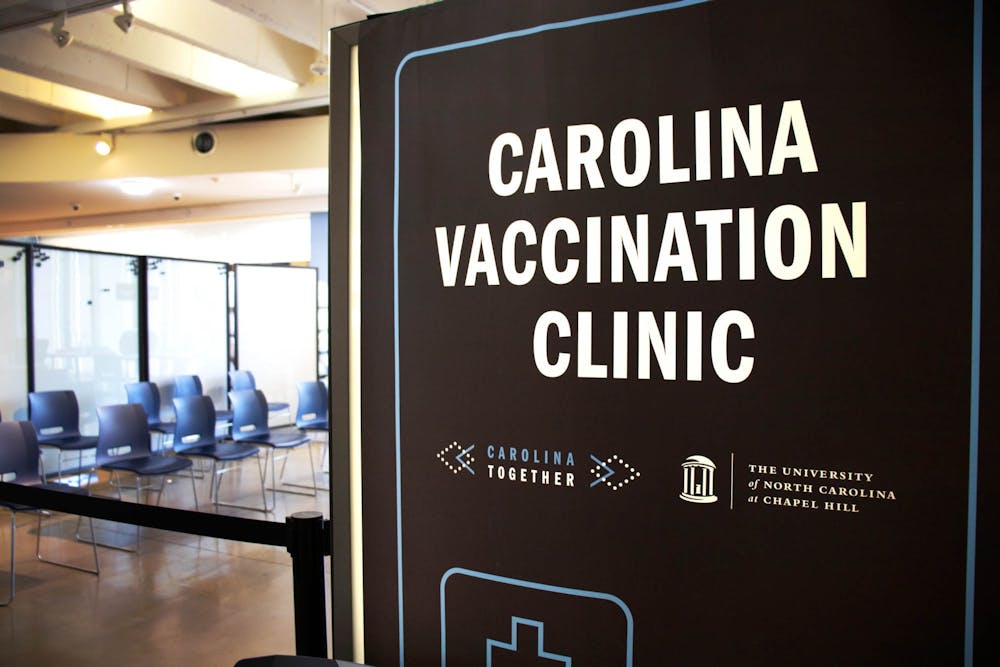Last week, the North Carolina Commission for Public Health unanimously voted against a proposal that would have mandated COVID-19 vaccines for high school students aged 17 and older.
On Oct. 1, over 200 professors from across the UNC System signed a petition for administrative review advocating for a COVID-19 vaccine requirement for all college students in North Carolina.
Although the commission did not vote on the Oct. 1 petition, it was cited in its discussion of the proposal to require the vaccine for either 17-year-old students or those entering the 12th grade, whichever comes first.
While government and public health officials in the state had said such a mandate would be premature, some faculty who signed the petition for a college vaccine mandate disagree.
Vaccine mandate debate
UNC professor of philosophy Ram Neta, who signed the petition, said that the COVID-19 vaccine should not be treated differently from other vaccines.
“The reason why I signed the petition was I thought that whatever reasons the state has for protecting its residents from measles by mandating a measles vaccine in institutions where lots of people congregate, the same reasons it has for mandating a COVID vaccine,” Neta said.
He said he disagrees with the commission's vote against the proposal for a vaccine mandate for high school seniors.
"I don’t know why they voted the way they did," he said. "I didn’t see any rationale provided for the decision. I’m not saying there wasn’t a rationale, so maybe there was, but I didn’t see the rationale.”




